Climate action appears to us in terms of big gestures: installing solar panels, switching to an electric car, going zero-waste. Big, bold moves that are directly impactful in an instant. Some of the most powerful shifts start in the most ordinary places—like under your kitchen sink. While the idea of ‘eco-friendly cleaning’ may once have felt like a niche or nice-to-have, it's fast becoming a crucial part of how we reduce our collective environmental impact; but, when you zoom out from the micro level of your home to the macro view of our planet, it becomes clear: how we clean matters.
 At GoodBasics, we believe that cleaning can—and should—support both human health and planetary wellbeing. In this piece, we’re taking a wide-lens look at why your choice of cleaning products plays a real role in sustainability goals. From challenging chemical runoff and carbon-intensive manufacturing to plastic waste and everyday exposure, low-tox, probiotic-based cleaning solutions are part of a larger regenerative future. And the most empowering part? You don’t need to overhaul your life to start contributing. Small daily rituals, like how you wipe down your counter or mop your floor, can become climate-conscious acts.
At GoodBasics, we believe that cleaning can—and should—support both human health and planetary wellbeing. In this piece, we’re taking a wide-lens look at why your choice of cleaning products plays a real role in sustainability goals. From challenging chemical runoff and carbon-intensive manufacturing to plastic waste and everyday exposure, low-tox, probiotic-based cleaning solutions are part of a larger regenerative future. And the most empowering part? You don’t need to overhaul your life to start contributing. Small daily rituals, like how you wipe down your counter or mop your floor, can become climate-conscious acts.
 Conventional cleaning products, despite their fresh smells and powerful marketing, come with a hidden environmental cost. Most are made using synthetic chemicals, artificial fragrances, and petroleum-derived surfactants. These ingredients take equally a heavy toll on the environment across every stage of their lifecycle, as they do on your skin and respiratory system. From their extraction to their manufacturing and eventual disposal, conventional cleaning products reinforce extractive systems and contribute to pollution.
Conventional cleaning products, despite their fresh smells and powerful marketing, come with a hidden environmental cost. Most are made using synthetic chemicals, artificial fragrances, and petroleum-derived surfactants. These ingredients take equally a heavy toll on the environment across every stage of their lifecycle, as they do on your skin and respiratory system. From their extraction to their manufacturing and eventual disposal, conventional cleaning products reinforce extractive systems and contribute to pollution.
 The production of these products is particularly carbon-intensive. Petrochemical-based ingredients require the extraction, refinement, and processing of fossil fuels. Each step consumes large amounts of energy and releases greenhouse gases. Add this to the global freight system required to move them around the world, and suddenly your all-purpose spray has a carbon footprint bigger than you might expect. Then, there's the packaging; most traditional cleaning products are packaged in single-use plastic bottles, often made from virgin plastic. These plastics take hundreds of years to degrade and frequently end up in landfills or oceans, where they leach toxic chemicals into ecosystems and contribute to the growing problem of microplastic pollution.
The production of these products is particularly carbon-intensive. Petrochemical-based ingredients require the extraction, refinement, and processing of fossil fuels. Each step consumes large amounts of energy and releases greenhouse gases. Add this to the global freight system required to move them around the world, and suddenly your all-purpose spray has a carbon footprint bigger than you might expect. Then, there's the packaging; most traditional cleaning products are packaged in single-use plastic bottles, often made from virgin plastic. These plastics take hundreds of years to degrade and frequently end up in landfills or oceans, where they leach toxic chemicals into ecosystems and contribute to the growing problem of microplastic pollution.
 Another often-overlooked impact lies in what happens after we clean. When we rinse those harsh chemicals down the drain, they don’t just disappear, and many municipal water treatment systems aren’t equipped to fully filter out the synthetic compounds in conventional cleaners. As a result, residues can end up in rivers, oceans, and groundwater. These substances can be toxic to aquatic life and may bioaccumulate, working their way up the food chain and disrupting entire ecosystems. For a routine chore we hardly think twice about, cleaning can have long-term consequences far beyond our homes.
Another often-overlooked impact lies in what happens after we clean. When we rinse those harsh chemicals down the drain, they don’t just disappear, and many municipal water treatment systems aren’t equipped to fully filter out the synthetic compounds in conventional cleaners. As a result, residues can end up in rivers, oceans, and groundwater. These substances can be toxic to aquatic life and may bioaccumulate, working their way up the food chain and disrupting entire ecosystems. For a routine chore we hardly think twice about, cleaning can have long-term consequences far beyond our homes.

So, what does a lower-impact alternative look like? Enter probiotic cleaning—a radically simple, nature-aligned approach that uses beneficial bacteria and enzymes to clean at a microbial level. Probiotic cleaning products, like those developed by us, don't aim to sterilise. Instead, they aim to restore balance, working with nature to break down dirt and grime in a non-toxic, effective way. Unlike traditional cleaners that indiscriminately kill all bacteria, probiotic solutions support a healthy microbial environment in the home. This is both gentler on your body, and on the planet.
 Probiotic cleaners are made with low-impact, biodegradable ingredients that don’t rely on petroleum derivatives. Their formulation requires far less energy to produce and avoids the need for harsh chemical stabilisers, artificial scents, and synthetic surfactants. When they go down the drain, they don’t pose a threat to waterways, and in fact, some studies suggest that probiotic cleaners may even support the microbial health of wastewater systems, helping nature do what it does best: regenerate and rebalance. This incredible ability of probiotic cleaners to aid in reducing harmful substances like ammonia and sulfides is just one of the ecologically-positive ripple effects they can have on our environment.
Probiotic cleaners are made with low-impact, biodegradable ingredients that don’t rely on petroleum derivatives. Their formulation requires far less energy to produce and avoids the need for harsh chemical stabilisers, artificial scents, and synthetic surfactants. When they go down the drain, they don’t pose a threat to waterways, and in fact, some studies suggest that probiotic cleaners may even support the microbial health of wastewater systems, helping nature do what it does best: regenerate and rebalance. This incredible ability of probiotic cleaners to aid in reducing harmful substances like ammonia and sulfides is just one of the ecologically-positive ripple effects they can have on our environment.

One of the quiet superpowers of probiotic cleaning is its longevity. While conventional disinfectants offer a temporary fix—sanitising a surface before the bacteria return within hours—probiotics remain active long after you've cleaned. These beneficial microbes continue to work in the background, outcompeting harmful bacteria and preventing the reappearance of odours and grime. This means you end up using less product, less frequently, with better long-term results. It’s an approach that rewards consistency and sustainability over instant gratification.

It’s easy to underestimate the role our homes play in larger environmental systems. When you think about how often we clean—how many products we use weekly, monthly, and over the course of a year—it becomes clear that our choices scale quickly. A single household may go through dozens of cleaning products annually. Now, imagine thousands of households making more conscious decisions. Choosing a probiotic cleaner with carbon-positive impact over a bleach-based spray may seem like a small action, but it becomes a powerful collective force when repeated across communities, cities, and countries.

Cleaning with probiotics represents a shift in thinking—from simply reducing harm to actively participating in the regeneration of our environment. We love this element of regenerative design as an emerging framework, that focuses solely on minimising negative impact, but rather creates positive contributions to the systems we’re part of. Probiotic cleaning fits perfectly within that ethos; it adds life back into our homes, supports the health of our skin, airways, and waterways, and aligns with the planet’s natural rhythms rather than disrupting them.

By choosing probiotic products you’re aligning with systems that prioritise balance, resilience, and restoration. You’re building a home that is aligned with the principles of care, renewal, and stewardship. It’s easy to feel overwhelmed by the scale of the climate crisis. Though, meaningful action doesn’t have to look like protest marches or massive policy change. Sometimes, it looks like switching what’s in your spray bottle. It looks like a cleaning ritual that feels nourishing instead of noxious. It looks like refusing to buy into the myth that we need to bleach our homes into submission in order to keep them safe.

Cleaning can be one of the most intimate, everyday expressions of how we care—for ourselves, our loved ones, and our environment. When we clean with intention, with products that support microbial balance, with systems that reduce waste, we invite a different kind of future into our homes. One that’s not defined by regeneration and trust in the intelligence of nature.

At GoodBasics, we believe that the revolution starts at home. To us, with the aid of our tiniest microscopic allies, the small things are the big things. We know that how we clean today shapes the kind of world we leave behind tomorrow.


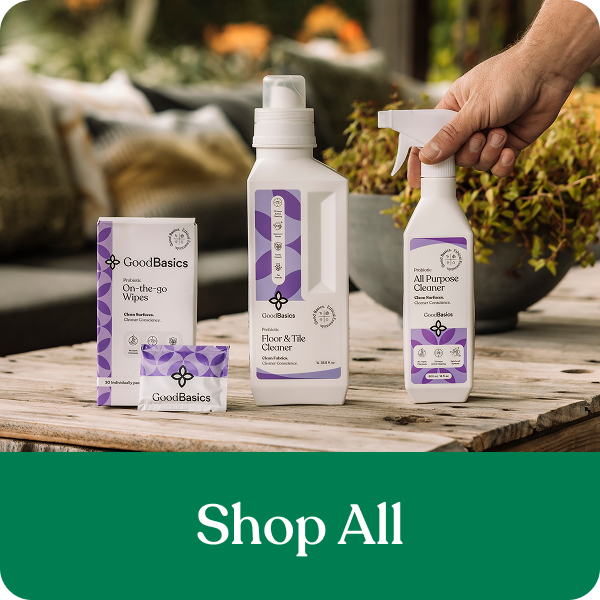
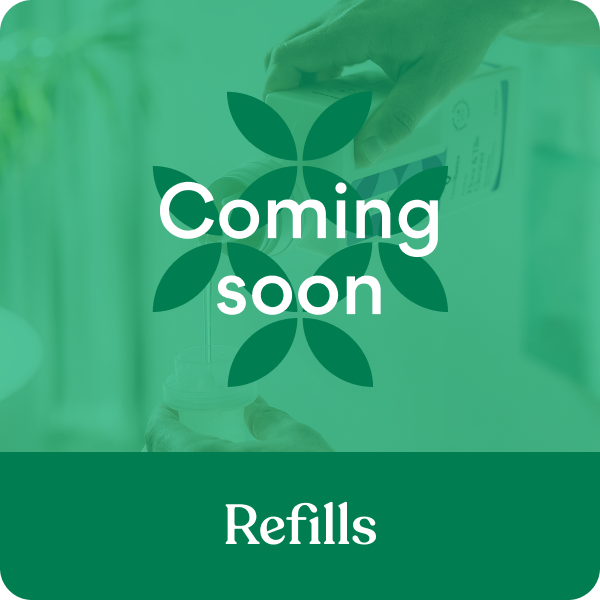
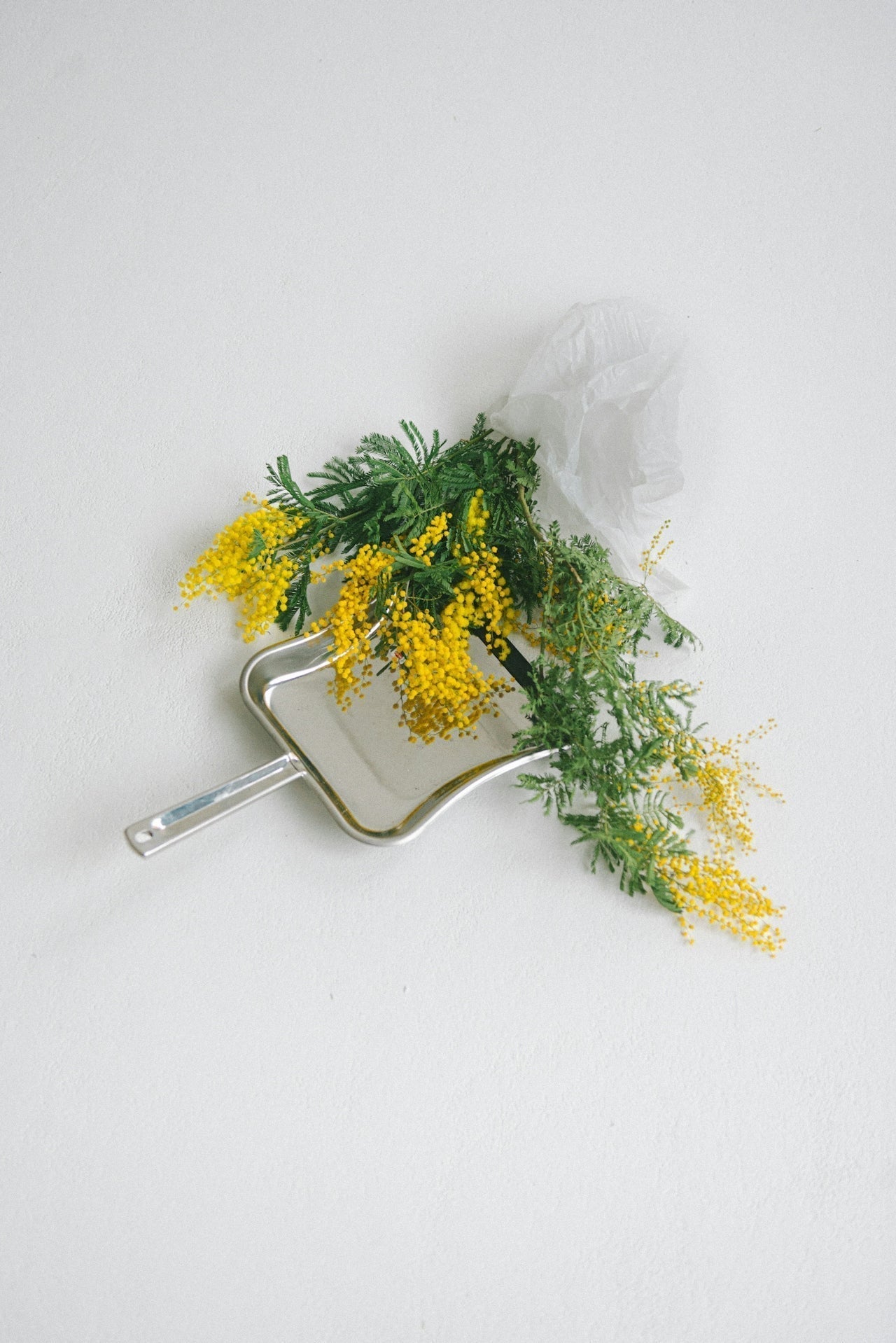

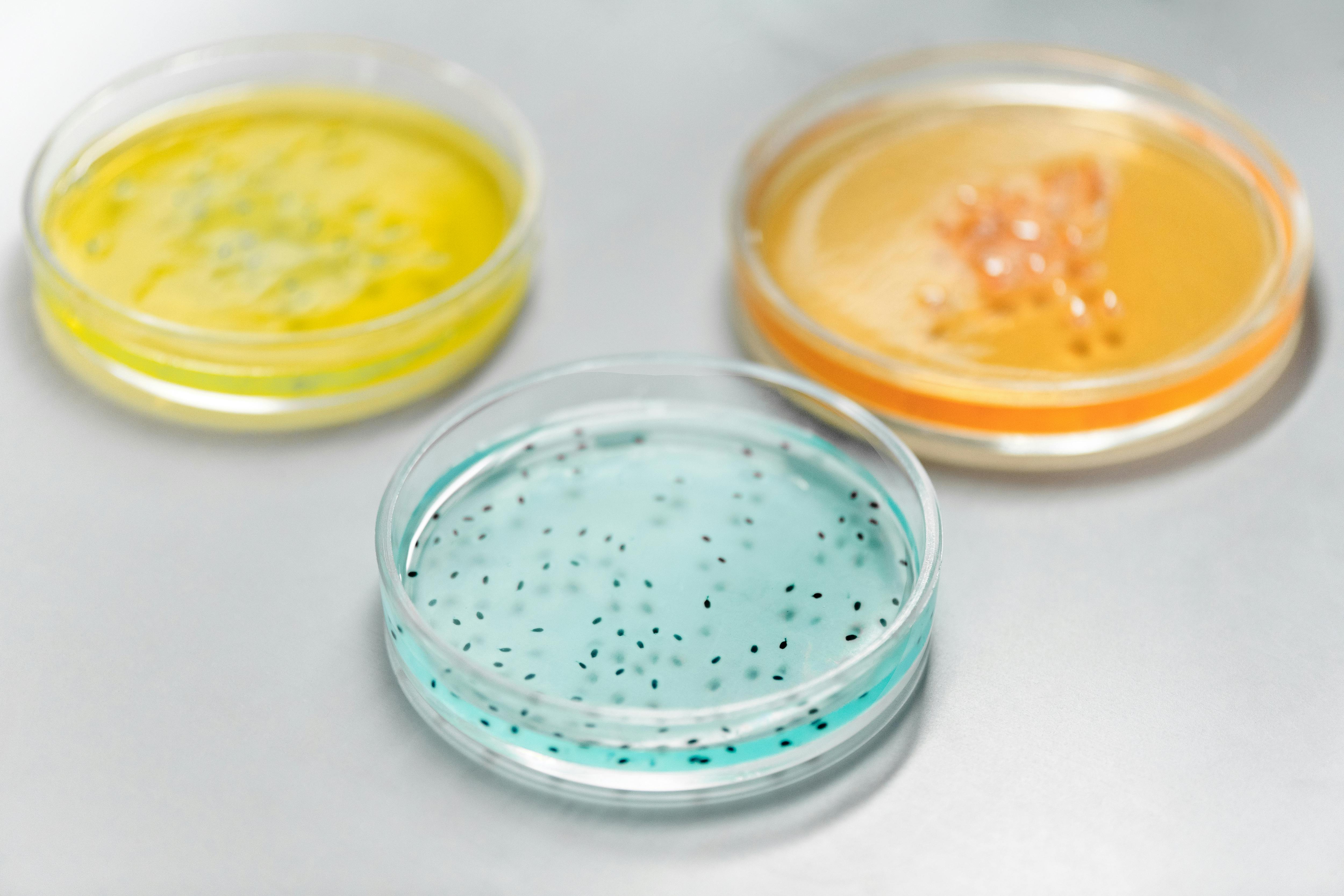
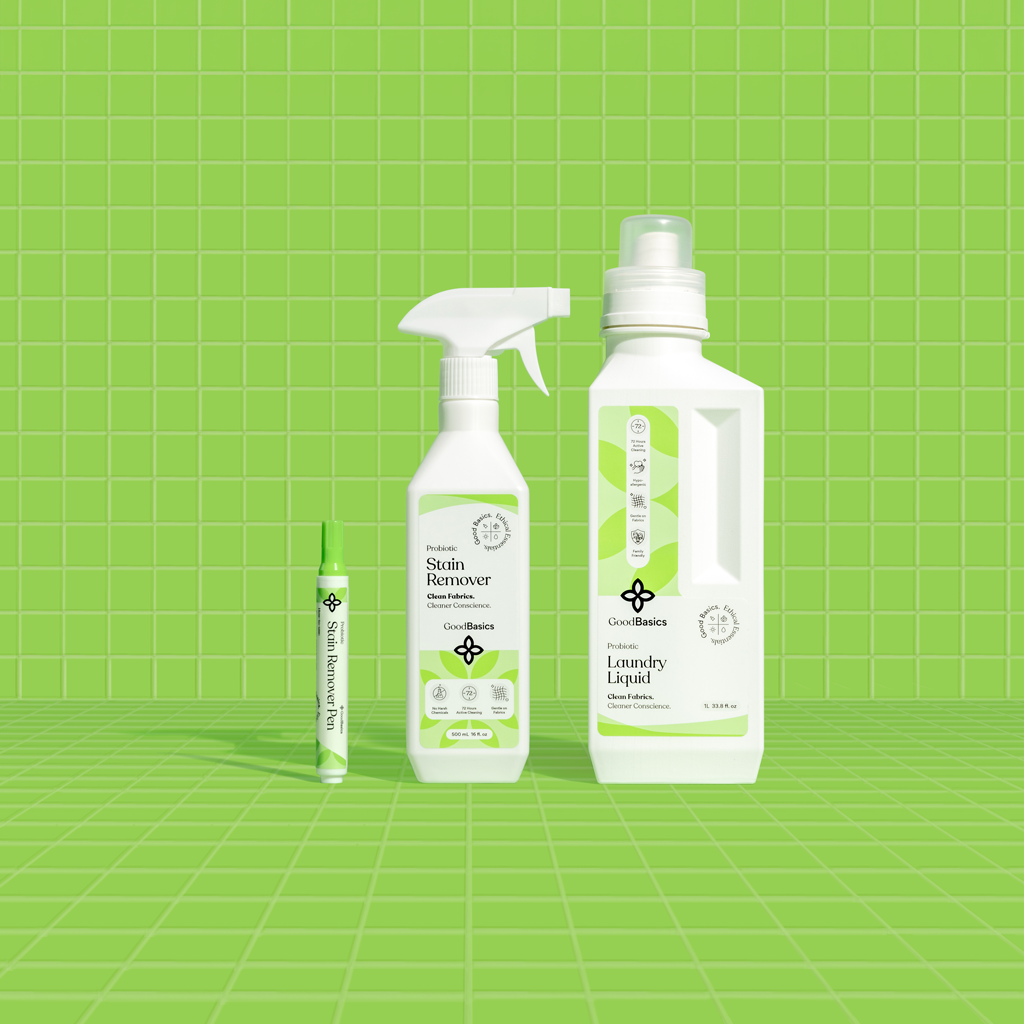
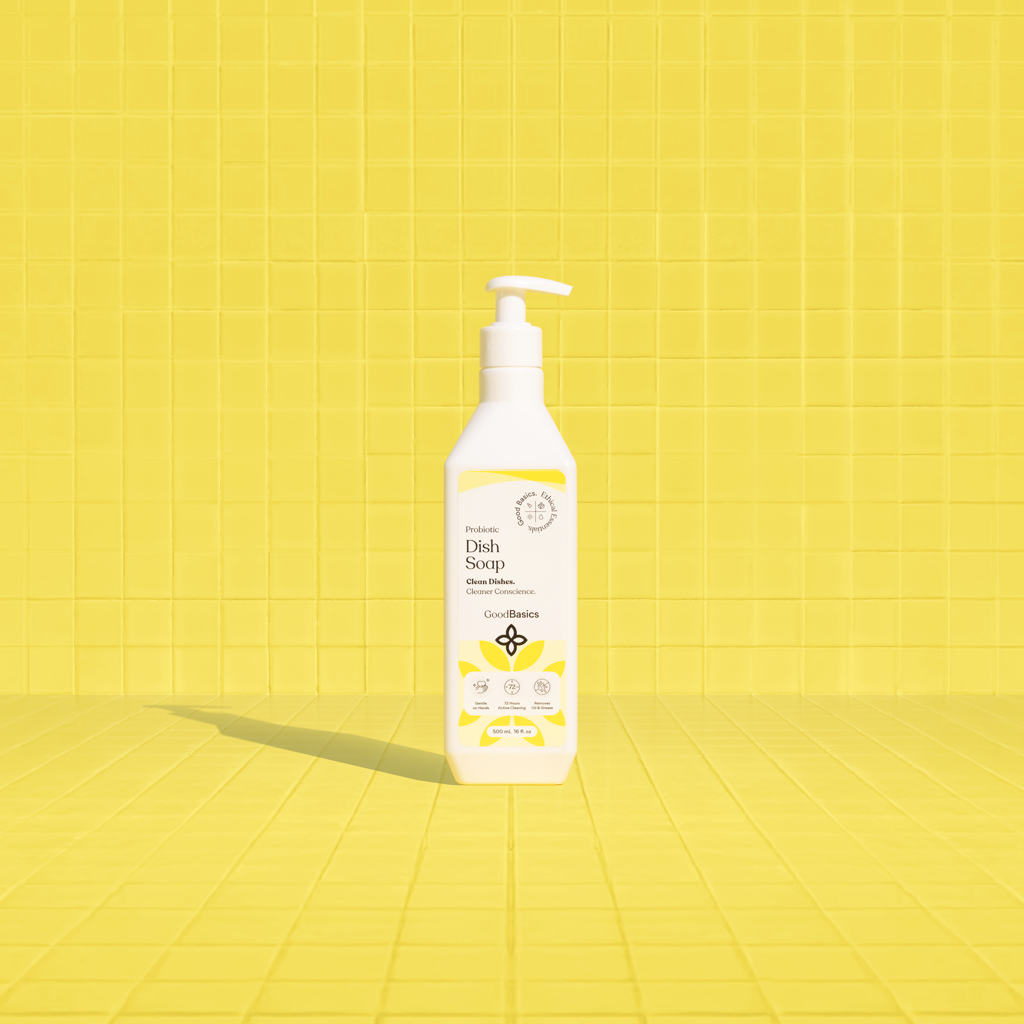
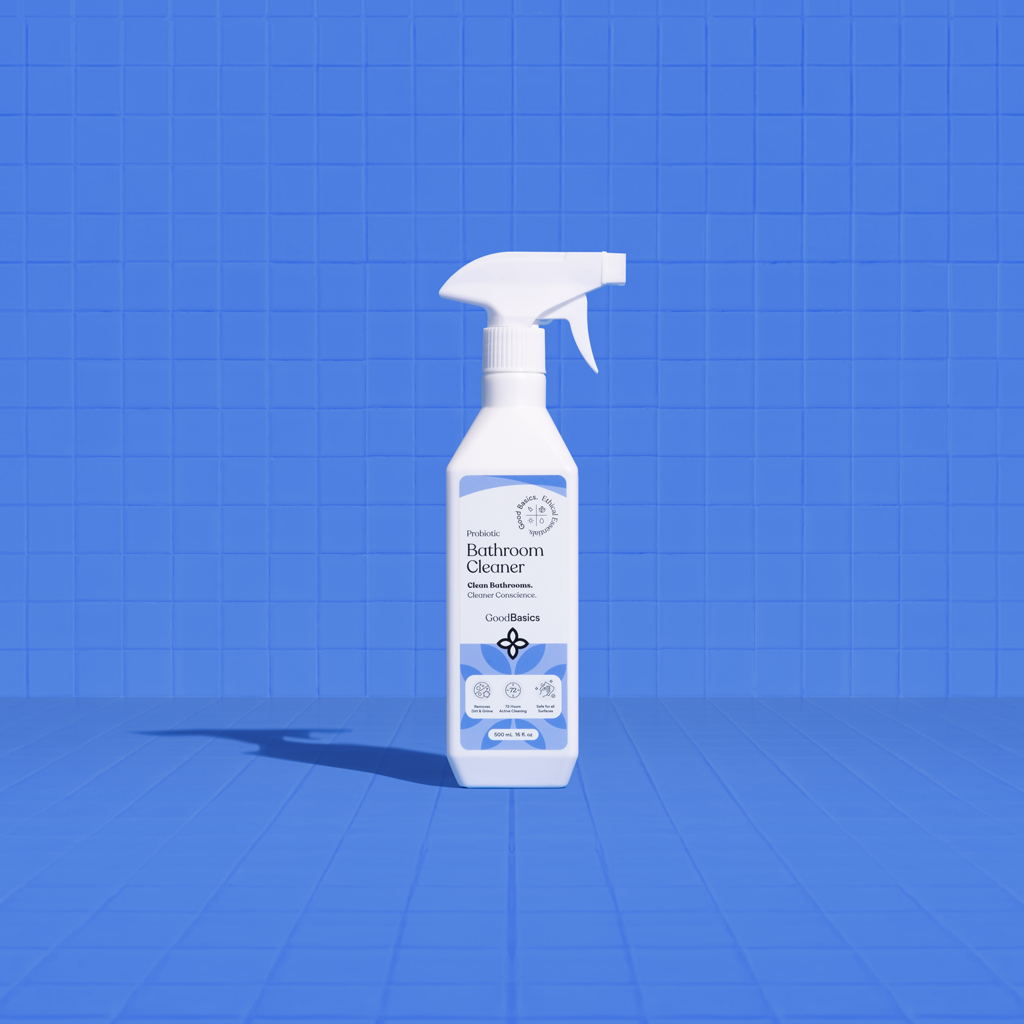
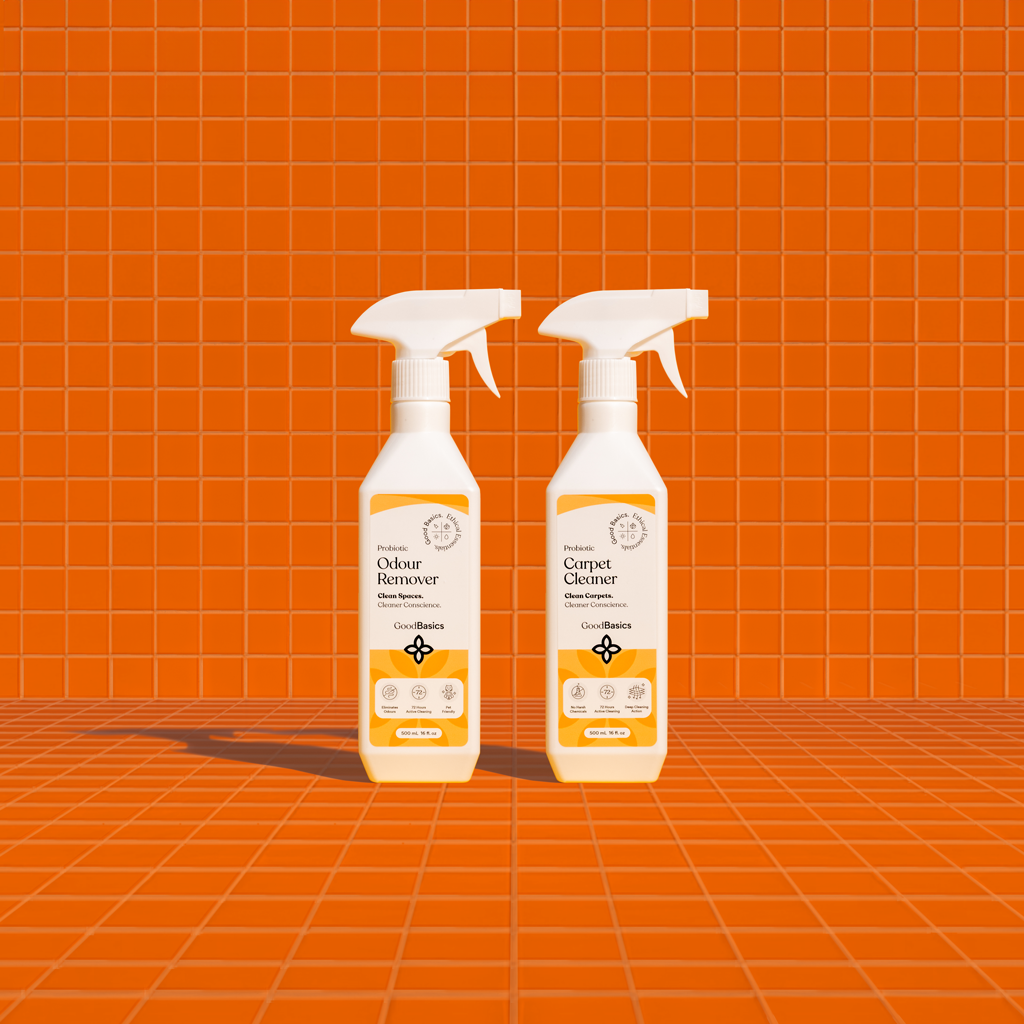
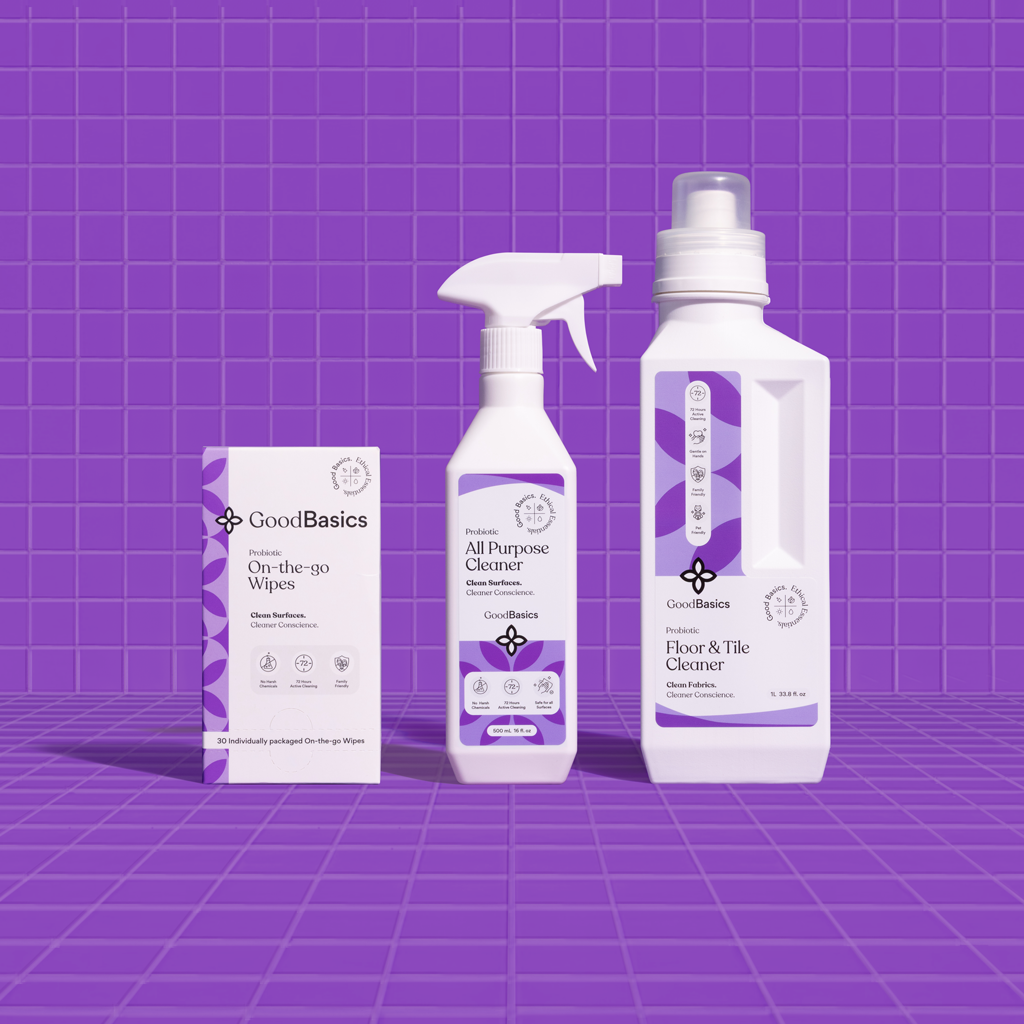
Leave a comment
All comments are moderated before being published.
All comments are moderated before being published.
This site is protected by hCaptcha and the hCaptcha Privacy Policy and Terms of Service apply.